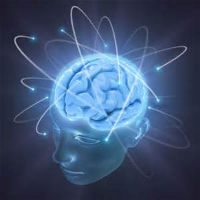Science is the study of what and how something happens. Metaphysics is the study of why, and there is a conceptual split between the two trains of thought in society.
Our mind is the centre of everything we try to do, and we would engage in our activities with or without a deep understanding of the mind because the function of the mind arises from the necessity of the bodies survival from one point of view. Yet, what issues do we experience in life that are strictly physical?
The mind is messing around in there, somehow. Our brains are prepared to see to our safety and affinity with our fellow humans. They are prepared to assist us in the seeking and acquisition of resources, the most primal and perhaps primary being food. Many of our emotional reactions revolve around that orientation on food. Our brains trigger the same disgust if we are socially offended as if we have smelled something offensive or eaten something unwholesome. They are even now confirming that our sense of smell has a great deal to do with our social cognition. We don’t consciously process it, but we do discern information about someone else’s state of mind and health based on smells from them.
So basically will it feed me or poison me? Will it feed me, poison me, attack me, or mate with me. All of these are fairly basic. The entire brain is one big recognition system. At its core, you have the most fundamental signals, like intensity of light or heat, and in a hierarchical progression upward you get something that more and more closely represent our conscious experience. Pain is a core signal.
More and more “refined”? In a sense, yes, but in fact more and more interpreted. At the point of your conscious recognition of a perception, you have already filtered it through a great many levels of “recognition.” Ever notice dreams always seem strangely disjointed? Physical as well as spacial continuity is fuzzy, even temporal. Your core sense of self is reflected by what some scientists are calling the default mode network, which is mostly located in the early mammalian brain, the outer “cortex”, though it doesn’t share the structure of the actual cerebral cortex.
Dreams are disjointed, to be sure. Dreams are disjointed because they occur at a stage that doesn’t access more abstract memory. They draw from the more primary sense traces. Every synapse in your brain is a memory.
I ponder lower brain? Actually, just on the fringe of lower and higher, sort of the bridge between the two.
So, your senses are rather limited in a strictly physical sense of the word. The optical data the eyes pick up is spotty to say the least. Why it doesn’t look that way is the the brain has habits, reflexes perhaps, that try to splice information together, like the saccading behaviour of the eye, the twitchy scanning pattern.
What about sleepwalking? Your brain is never totally asleep. At any given time, even while you think of yourself as awake, there are small regions of your brain that are asleep.
That would be dead if it was, right? Yes, total sleep would likely be injurious to our health.
So in the case of sleepwalking, is that dreaming or in-between? The sleep walker often does dream, probably always does, though it’s often not recalled as fatigue complicates that. The sleep walker doesn’t sleep well. As far as the physical reactions while sleeping, your primary “ideation”, the process that starts anything that in later stages becomes a thought, occurs at the motor level. They call this the sensory motor network.
That’s why dogs run when they sleep. They dream of chasing something maybe? Yes.
Your thoughts are welcome. Be well friends.
Travis Saunders
Dragon Intuitive
~science,mysticism,spirituality~

